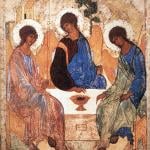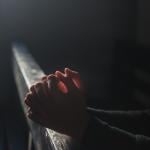Denver, Colo., Oct 13, 2016 / 04:30 pm (CNA/EWTN News).- For history professor Christopher Shannon, Catholics in American politics have a long history, yet this legacy is overshadowed by a troubling disunity in the present. “This rupture in the Church and the change in American politics has only hardened divisions within the Church,” said the Christendom College professor. “What frustrates me or troubles me is that they seem to be more concerned about ‘where’s our country going?’ than ‘where’s our Church going?'.” “They seem much more comfortable and happy to work for a better America, with their liberal friends or their conservative friends, than [to] really restore unity in the Church,” he said. “The political divisions in the Church have only hardened and worsened the theological divisions and the division in general.” Prior to the 1960s, the unity that people see in the Church was also reflected in a political unity, Shannon thought. “Catholics, for all of their infighting, could see themselves as a united people in the Church, and also because they were united in their politics,” he said in a Sept. 9 interview with CNA.Catholics in America through the 19th century Catholic politicians, though always a minority, have a long history in the United States. Maryland’s Charles Carroll, for instance, was the only Catholic signer of the Declaration of Independence. But by the mid-19th century the average Catholic in America was an immigrant, and poor. Unlike in Europe, no Catholic party had emerged in the United States. For Shannon, Archbishop John Hughes of New York, who headed the archdiocese from 1842-1864, came closest to creating a Catholic politics in the 19th century. He would never have considered himself to be acting as a Catholic politician, but his actions regarding the public school system certainly had a political edge. The public school system was de facto Protestant, with religious education based on reading the King James Version of the Bible. Catholics objected to this, and bishops sought that Catholics could be excused from reading the Protestant Bible. The archbishop’s stand was simply based on “self-preservation and defense of his community,” according to Shannon. Archbishop Hughes did start a political party over the issue to split the Democratic Party vote in New York politics, but he eventually resolved the controversy by starting the Catholic school system. There were no Catholic politicians in the 19th century of the same stature as Archbishop Hughes. Rather, these politicos played smaller roles in patronage and influence networks like New York City’s Tammany Hall. Such a politician was “not a man of principle in the modern sense… but very much a man of the people,” Shannon explained. “These type of politicians have a bad reputation today for their corruption and such, but for them politics was about delivering the goods and not about high principles: The widow Murphy needs coal, or she will freeze to death. Old Joe Riley he can make sure she got coal.” “That was Catholic politics, really, through most of the 19th century,” Shannon summarized. “That was good enough for those people.” At the time, there weren’t Catholic principles that applied to democratic institutions. The Church itself had doubts about democracy. The first social encyclicals aiming to engage modernity on positive grounds had little impact, except for a small but growing number of priests who used them to try to articulate a Catholic politics – most clearly exemplified by Msgr. John Ryan, who became especially prominent as an ally of President Franklin Delano Roosevelt’s New Deal. The venue for most Catholics was also geographically localized. “Catholic politics is urban politics,” Shannon said. “It was all urban, it was all about the political machines that ran the cities.” Irish immigrants especially dominated politics. They came largely fluent in English, and their homeland was politicized in the wake of Catholic emancipation. Their dominance was at time resented by other Catholic groups, not to mention other Americans.Al Smith, four time New York governor Since the late 19th century, Catholics had become a force in the Democratic Party. New York governor Al Smith, a Democrat, became the first Catholic candidate for president in 1928. While Smith had come out of a Tammany Hall environment, he was not considered corrupt. He was also sympathetic to some concerns of the Progressive Era, which saw the need for a programmatic approach to social problems instead of case-by-case acts of charity. Smith was not directly influenced by the social teachings of the papacy. At one point, a leading writer in The Atlantic challenged his candidacy and wondered his presidency would be negatively influenced by papal encyclicals. Possibly apocryphally, Smith replied: “What the hell is an encyclical?” “He was trying to develop a Catholic politics without calling it a Catholic politics,” Shannon said. “I think the most important thing about Smith, the great contrast with Kennedy later, is that when he would say, ‘I’m an American, I’m not trying to impose my faith on people,’ he would be attacked and attacked, but he would never back down from his commitment to the Church and from identifying himself as a Catholic.” “For him, Catholic politics was a kind of identity politics: ‘I’m Catholic and I can be Catholic and American, I can be a Catholic and a good president, and I’m not going to renounce my faith by silence or by denying or ignoring my faith’.” Smith sought votes not for his religion, but for his political positions. Al Smith failed win the presidency, but his career peak as New York governor was a tremendous step for Catholics in America.JFK: a president who happened to be Catholic The presidency of John F. Kennedy was another watershed moment for Catholics in the United States. “He in some sense, more through his assassination than his actual election, puts to rest the idea that Catholics cannot be good citizens,” Shannon said. However, his method of engaging the issue of Catholic faith and politics was different from that of Smith, particularly in how he addressed the concerns of those sceptical of a Catholic in the White House. Kennedy, in his Sept. 12, 1960 speech to the Greater Houston Ministerial Association, said, “I am the Democratic Party's candidate for President who happens also to be a Catholic.” “I do not speak for my Church on public matters; and the Church does not speak for me,” Kennedy continued. “Whatever issue may come before me as President, if I should be elected, on birth control, divorce, censorship, gambling or any other subject, I will make my decision in accordance with these views – in accordance with what my conscience tells me to be in the national interest, and without regard to outside religious pressure or dictates. And no power or threat of punishment could cause me to decide otherwise.” For Shannon, this represents a privatization of Kennedy’s Catholic faith. His example often flowed into popular interpretations of the Second Vatican Council. “The Church is not saying that your faith should be purely private, but it is endorsing what looks like an American model in terms of disestablishment and religious pluralism,” Shannon said. “The big thing is, when Kennedy becomes this great martyr, Catholics feel they’ve finally arrived,” he added. “On what terms? On American terms. They’re accepted as Americans, they’re not accepted as Catholic Americans. And certainly not accepted because as Catholics they have something distinct to contribute to the country, as Catholics.” Shannon held that a politician like Smith would never have claimed to be a Catholic politician or to have had the right to impose his faith on others. However, “he would never have renounced the Church in the way that Kennedy did. It was a matter of tone and style.” For Shannon, Kennedy’s statement is a harsh one – he could have taken the same stand without so strongly distancing himself. Those who say their faith has nothing to do with their politics must answer the question, “Where do you draw your guidance from?”The situation after Vatican II With the example of Kennedy, and popular interpretations of the Second Vatican Council, both conservative and liberal Catholics would cite the pluralistic nature of democracy as a reason to privatize their faith. “They start saying ‘various positions are rooted in my faith, and therefore they are private’,” Shannon said. Both liberal and conservative Catholics started making the distinction. Even on abortion, the conservative writer William F. Buckley, Jr. in March 1966 column, claimed that the principal meaning of the Second Vatican Council was that other men must be free to practice their conscience, and if they do not believe abortion is wrong then anti-abortion laws would contradict the Church’s position. “That kind of distinction gathers steam through the mid-60s and '70s, and is given its most famous formulation by Mario Cuomo at Notre Dame, significantly, as he is seeking national office,” Shannon said. In his Sept. 13, 1984 speech sponsored by the University of Notre Dame’s Department of Theology, Cuomo justified his pro-abortion rights position by saying Catholic public officials live a “political truth” which holds “that to assure our freedom we must allow others the same freedom, even if occasionally it produces conduct by them which we would hold to be sinful.” “I accept the Church's teaching on abortion. Must I insist you do? By law? By denying you Medicaid funding? By a constitutional amendment? If so, which one? Would that be the best way to avoid abortions or to prevent them?” the governor asked. Shannon summarized Cuomo’s position as “personally opposed but publically agnostic.” The governor said his duty as a public servant was to uphold “the law of the land,” but he does not give consideration to his ability to change the law. This built on the deep rupture within the Church over Bl. Paul VI’s reaffirmation that the use of artificial birth control is sinful, including use of the then-novel birth control pill. “Those issues are the basic ones that divide liberal and conservative Catholics to this day,” Shannon said. This in turn has led to deeper divisions.Where we are today Pro-life advocates first sought a home in the Democratic Party on the assumption that its policies focused on caring for people and were consistent with Catholic social justice tradition. This effort continued through the mid-1970s, when pro-life Democrats, stymied by feminist resistance, started to migrate into the Republican Party as it slowly converted to a pro-life view. However, Shannon noted, these former Democrats then adopt “a whole range of political positons that most Catholics would have never thought have adopting, because they saw them as ‘un-Catholic’: a general endorsement of the free market, a comparative lack of concern for the poor, a tendency to blame the poor for their poverty.” “In earlier times, the Catholics were the poor and they were being blamed for their poverty,” Shannon said. “Today, they are clearly divided in their Church, just as they are divided in their politics” He acknowledged that a united Catholic position would face difficulty finding a home in either party at present. “The cultural positions of the Church are going to offend the Democrats, the economic positions of the Church are going to offend Republicans,” he said, pondering the state of Catholics today. “What troubles me is that they’re seeking the solution to this division more through politics than through the Church itself. They’re thinking: ‘If our side wins at politics then we’re going to drive the others out of the Church, and we’ll win in the Church’.” Shannon proposed another path. “Why not heal the wounds and divisions in the Church first? Certainly, be good citizens, be involved in the political process, but do so from a united Catholic position.” Read more
















